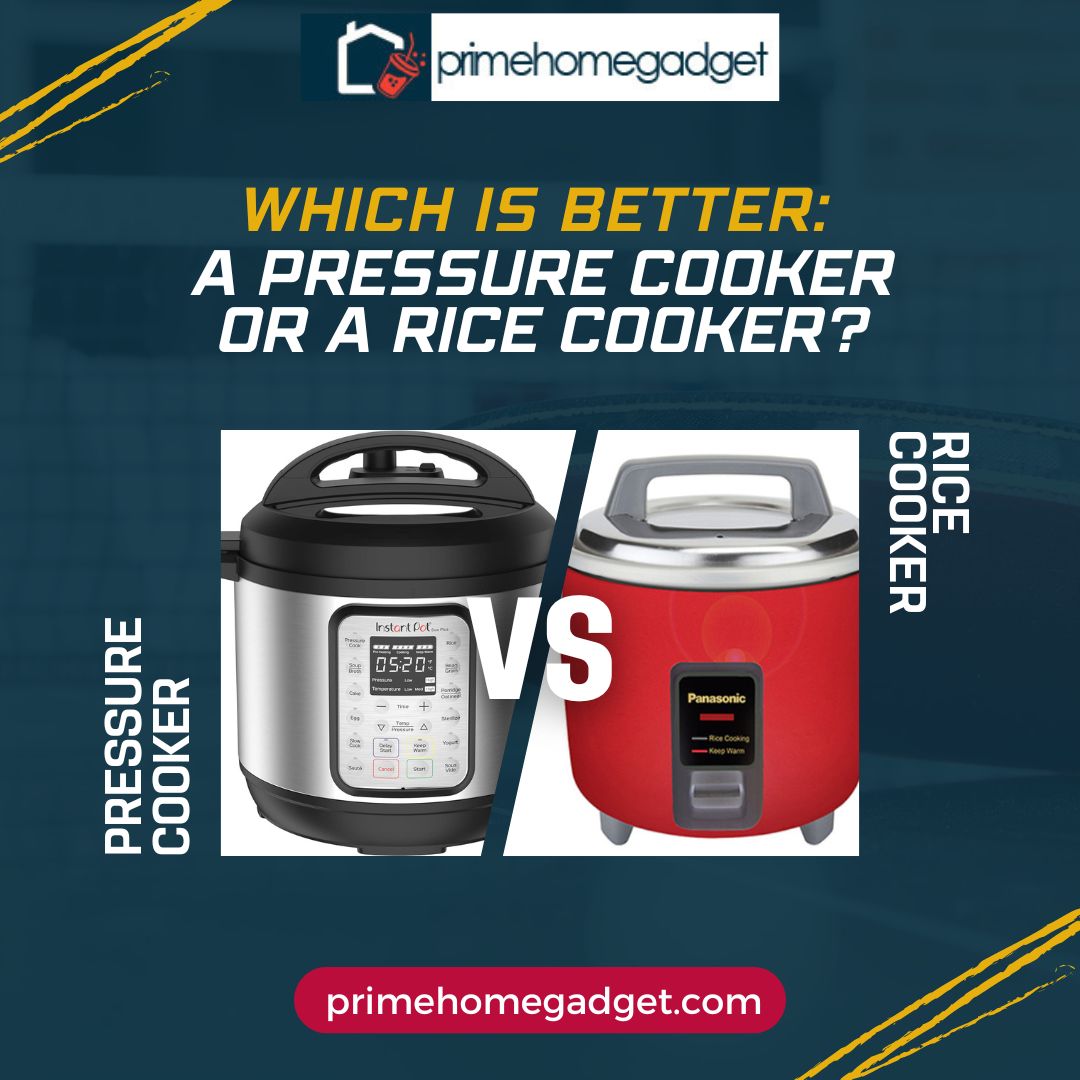Top Rated Rice Cooker on Amazon:
Discover the key differences between a pressure cooker and a rice cooker, and find out which one is better suited for your kitchen needs. Explore their advantages and disadvantages, and decide which When it comes to choosing between a pressure cooker and a rice cooker, the decision can be challenging. Both kitchen appliances have their own unique benefits, but which one is better for you? In this blog post, we’ll explore the features, advantages, and disadvantages of each appliance to help you make an informed decision. Let’s dive in and find out which kitchen companion suits your needs best!
Understanding the Basics between a Pressure Cooker and a Rice Cooker
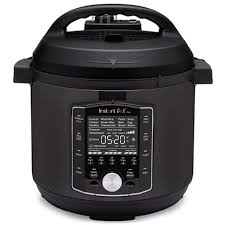
Pressure Cooker
A pressure cooker is a versatile appliance designed to cook food quickly by using high-pressure steam. It can prepare a variety of dishes, from stews and soups to beans and even desserts. The high pressure allows the food to cook faster than traditional methods, making it a time-saving tool in the kitchen.
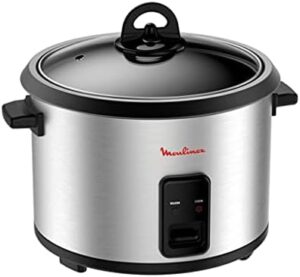
Rice Cooker
A rice cooker, on the other hand, is specifically designed to cook rice perfectly. It simplifies the process by automating the cooking cycle, ensuring consistent results every time. Some advanced rice cookers also come with additional functions like steaming vegetables or cooking porridge, but their primary focus remains on rice.
| Feature | Pressure cooker | Rice cooker |
| Primary Function | Cooks a wide range of foods using high-pressure | Specifically designed to cook rice |
| Cooking speed | Fast due to high-pressure steam | steam Moderate, automated cooking cycle |
| Versatility | Highly versatile and can cook various dishes | Limited versatility, mainly for rice and simple dishes |
| Ease of Use | Requires monitoring and experience | User-friendly, set-and-forget operation |
| Safety Features | Modern models have multiple safety mechanisms | Generally safe, simpler design |
| Nutrient Retention | Retains nutrients well due to quick cooking | Retains nutrients well, especially for rice |
| Price Range | Generally higher | Generally lower |
Advantages and Disadvantages of Pressure Cooker and Rice Cooker
Pressure Cooker
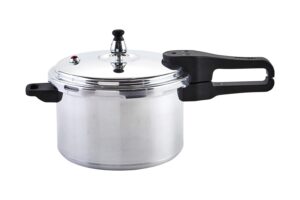
Top Rated Rice Cooker on Amazon:
Advantages:
1. Time-saving: The high-pressure steam cooks food quickly, reducing cooking times significantly. For example, dried beans that normally take hours to cook can be ready in less than an hour.
2. Versatile: Can cook a variety of dishes, from meats and vegetables to grains and desserts. It’s perfect for making complex dishes like beef stew or cheesecake.
3. Energy Efficient: Uses less energy due to shorter cooking times. This can lead to lower utility bills and a smaller environmental footprint.
4. Nutrient Retention: Retains more nutrients compared to longer cooking methods. The shorter cooking time means that vitamins and minerals are preserved better.
Disadvantages:
1. Learning Curve: Requires some experience to be used effectively. Beginners might find it intimidating due to the high pressure and potential safety risks.
2. Safety Concerns: Although modern models have safety features, misuse can still be dangerous. It’s crucial to follow the manufacturer’s instructions to avoid accidents.
3. Higher Cost: generally more expensive than rice cookers. However, the investment might be worth it for those who cook a variety of meals frequently.
4. Maintenance: Requires regular maintenance, such as checking the gasket and pressure valve, to ensure safety and performance.
Rice Cooker
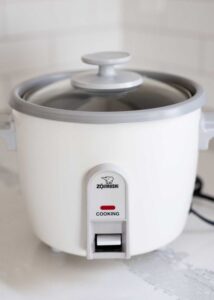
Advantages:
1. Ease of Use: Simple, set-and-forget operation. You just add rice and water, press a button, and the cooker does the rest.
Consistent Results: It cooks rice perfectly every time. Whether you’re making sushi rice, jasmine, or brown rice, the results are reliable.
2. Multi-Functionality: Some models can steam vegetables, cook other grains, and even make porridge or soups. This adds a bit of versatility to an otherwise single-purpose appliance.
3. Affordable: generally cheaper than pressure cookers. Even high-end rice cookers are often less expensive than many pressure cookers.
Disadvantages:
1. Limited Versatility: Primarily designed for cooking rice. While some models offer additional cooking functions, they are not as versatile as pressure cookers.
2. Longer Cooking Time: It takes longer to cook food compared to pressure cookers. Cooking rice can take 20–40 minutes, which is longer than what a pressure cooker might take for similar tasks.
3. Less Efficient for Non-Rice Dishes: Not as effective for cooking non-rice dishes. If you often cook a variety of meals, you might find the rice cooker limiting.
4. Space Consumption: Takes up counter space, which might be a consideration for smaller kitchens.
Which one should you choose?
The choice between a pressure cooker and a rice cooker depends on your cooking habits and needs.
Choose a pressure cooker if:
- You need a versatile appliance that can cook a wide range of dishes.
- You often prepare meals that require long cooking times, like stews or beans.
- You value quick cooking and energy efficiency.
- You are willing to invest time in learning how to use it safely
Choose a Rice cooker if:
- You primarily cook rice and want it to be perfect every time.
- You prefer a user-friendly, set-and-forget appliance.
- You are looking for a budget-friendly option.
- You occasionally need to steam vegetables or cook simple dishes.
In conclusion, both pressure cookers and rice cookers offer unique benefits. For versatility and quick cooking, a pressure cooker is ideal. If you prefer simplicity and perfect rice every time, a rice cooker is your best bet. Your choice depends on your specific cooking needs and preferences.
Pressure cookers save time and accommodate a variety of dishes, making them perfect for busy cooks. Rice cookers excel at making rice effortlessly. Consider your cooking style, frequent meals, and kitchen space when deciding. Ultimately, the best appliance is the one you’ll use regularly and that fits your routine
Top Rated Rice Cooker on Amazon:
- TIGER Micom Rice Cooker:

